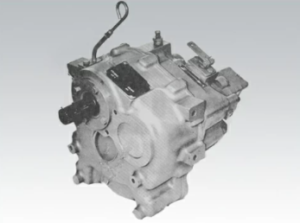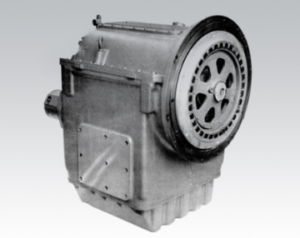March 27, 2025
Twin Disc MG509 Marine Transmission Parts — Rebuilt MG509 Gear Section
Understanding MG509 Case Styles: Shallow vs. Deep
Rotation, Controls, and Mounting—Selection Notes (Catalog-Focused)
Choosing the Right MG509 Ratio for Your Vessel
Exchange Program & Core Deposit—What to Expect
Quality & Testing You Can Count On
Installation Adjacencies Worth Considering (Catalog Companion Items)
How to Read Your Existing MG509 Tag (So You Order Once)
Troubleshooting Symptoms That Point to a Rebuild
Quick Order Guide (In Catalog Order)
Why Buy Your Rebuilt Twin Disc MG509 From Diesel Pro Power
Read More
March 26, 2025
Twin Disc MG502 Marine Transmission Parts — Rebuilt MG502 Gear Section
Marine Transmission Specifications & Applications (MG502 Focus)
Duty Profile & Cooling
Common Engine Pairings (SAE #3)
Ratio Strategy & Propeller Notes
Choosing the Right MG502 Ratio for Your Mission
If You Value Responsiveness and Speed
If You Need a True All-Rounder
If You Demand Thrust and Control
Catalog-Driven Diagnostics (No Installation Procedures)
Symptom: Slipping Under Load
Symptom: Harsh “Clunk” on Engagement
Symptom: Persistent Idle Rattle or Vibration
Symptom: Weeping Seals Accompanied by Age/Noise
Core Deposit & Exchange (Rebuilt MG502)
Product Summaries (MG502 Highlights)
Rebuilt MG502 — 1.54:1
Rebuilt MG502 — 2.00:1
Rebuilt MG502 — 2.47:1
Input Coupling (Centaflex-Type, SAE #3)
Rubber Block Isolation Mount
Why Buy Twin Disc MG502 Parts & Rebuilt Gears from Diesel Pro Power
Purpose-Built Catalog Organization
Acceptance-Tested Rebuilt Units
Fast Availability & Straightforward Core Credits
Fit Assurance for SAE #3 Applications
Marine-Focused Support
Read More

March 25, 2025
Introduction
General Information
Installation and Setup
Oil and Fluids
Routine Maintenance
Troubleshooting
Performance and Operation
Parts Support
Storage and Off-Season Use
Best Practices
Conclusion
Videos About Twin Disc Transmissions
Read More
March 25, 2025
Introduction: Why Parts Support Matters for the MG527
Section 1: Recommended Aftermarket Suppliers for MG527 Parts
Diesel Pro Power: The Preferred Aftermarket Source for MG527 Parts
Popular MG527 Components Available Through Diesel Pro Power:
Section 2: Aftermarket vs. OEM: Cost, Availability, and Performance Of Parts For Twin Disc MG527 Marine Gears
OEM (Original Equipment Manufacturer)
Aftermarket: Premium Quality, Better Access
✅ Benefits of Diesel Pro Power’s Aftermarket MG527 Parts
Section 3: What’s Included in a Twin Disc MG527 Rebuild Kit
1. Friction Discs (Clutch Plates)
2. Bearings and Bushings
3. Seals and Gaskets
4. Snap Rings, Shims, and Spacers
5. Optional Add-Ons
Section 4: How to Plan a Successful MG527 Rebuild
1. Evaluate Transmission Condition
2. Create a Service Plan
3. Work With a Trusted Parts Supplier
4. Document Everything
Section 5: Upgrade Options — Complete Remanufactured MG527 Units
Final Thoughts: Get the Right Parts, Right Now
Videos About Twin Disc Transmissions
Read More

March 25, 2025
Introduction: How to Maximize the Lifespan of Your Twin Disc MG527
Section 1: Use Only High-Quality Parts and Fluids For Your Twin Disc MG527 Marine Gear
Why Quality Parts and Fluids Matter
Fluids: Your First Line of Defense
Parts: Always Go Premium—Not Just OEM
Section 2: Operate Within Optimal Load Conditions For Twin Disc MG527 Marine Gears
Understanding the Importance of Load Balancing
Stay Within Specified Load Parameters
Avoid High-Throttle Shifting or Sudden Direction Changes
Control Vessel Load Weight
Section 3: Seasonal Inspection and Maintenance Routines For Twin Disc MG527 Marine Gears
Daily or Pre-Departure Checks
Every 250 Hours
Every 500–1000 Hours
Annual Inspections
Section 4: Off-Season Storage PreparationFor Twin Disc MG527 Marine Gears
Why Storage Prep Matters
Step-by-Step Storage Checklist
✅ 1. Change the Oil
✅ 2. Inspect and Top Off Fluids
✅ 3. Cycle the Gear
✅ 4. Protect Seals and Bearings
✅ 5. Secure Cables and Linkage
✅ 6. Store in a Dry, Covered Area
✅ 7. Log Storage Date and Setup
Recommissioning After Storage
Recommended Diesel Pro Parts to Support Longevity
Why Choose Diesel Pro?

Conclusion: Extend the Life of Your MG527—By Design
Videos About Twin Disc Transmissions
Read More

March 25, 2025
Introduction: Why Oil Selection and Maintenance Are Mission-Critical
Section 1: Approved Oil Types for Twin Disc MG527
Marine Transmission Fluid Specifications
Recommended Mineral Oils (Non-Synthetic)
Synthetic Oils: Pros and Cons
Recommended synthetic fluids:
Automatic Transmission Fluid (ATF) Use
Oil Selection Tips
Section 2: Fluid Capacity and Change Procedures For Twin Disc MG527 Marine Gears
Estimated Oil Capacity
When to Change the Oil
Step-by-Step: How to Drain and Replace Transmission Oil
✅ Step 1: Warm the Gearbox
✅ Step 2: Position Drain Pan or Vacuum Extractor
✅ Step 3: Remove the Drain Plug (If Equipped)
✅ Step 4: Remove and Inspect Filter or Screen
✅ Step 5: Clean Drain Plug and Magnet
Step-by-Step: How to Refill Transmission Oil
✅ Step 1: Choose Correct Oil
✅ Step 2: Add Oil Through Fill Port
✅ Step 3: Check Oil Level
✅ Step 4: Start Engine and Circulate Oil
✅ Step 5: Final Top-Off and Check
Dipstick Reading Best Practices
Section 3: Oil Monitoring and Condition Analysis For Twin Disc MG527 Marine Gears
Visual Inspection Tips
Oil Analysis Services
Oil Sampling Procedure
Common Mistakes to Avoid
Seasonal Oil Management Tips
Conclusion: The Right Oil Makes All the Difference
Videos About Twin Disc Transmissions
Read More





 Free US Calls: 1-888-433-4735
Free US Calls: 1-888-433-4735 International: 305-545-5588
International: 305-545-5588


